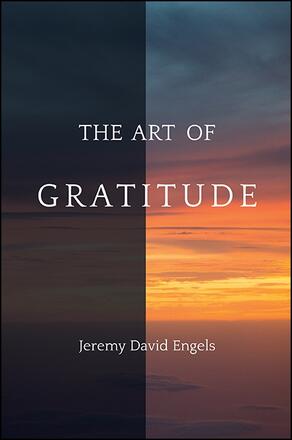
The Art of Gratitude
Alternative formats available from:
Explores how the emotional experience of gratitude has been enlisted in neoliberal governance through the language of debt.
Description
In The Art of Gratitude, Jeremy David Engels sketches a genealogy of gratitude from the ancient Greeks to the contemporary self-help movement. One of the most striking things about gratitude, Engels finds, is how consistently it is described using the language of indebtedness. A chief purpose of this, he contends, is to make us more comfortable living lives in debt, with the nefarious effect of pacifying the citizenry so we are less likely to speak out about social and economic injustice. To counteract this, he proposes an alternative art of gratitude-as-thanksgiving that is inspired by Indian philosophy, particularly the yoga philosophy of the Bhagavad Gita and Patanjali's Yoga-Sutras. He argues that this art of gratitude can challenge neoliberalism by reorienting our politics away from resentment, anger, and guilt and toward a democratic ethic of thanksgiving and the common good.
Jeremy David Engels is the Sherwin Early Career Professor in the Rock Ethics Institute and Associate Professor of Communication Arts and Sciences at Penn State University. He is the author of The Politics of Resentment: A Genealogy and Enemyship: Democracy and Counter-Revolution in the Early Republic.
Reviews
"The Art of Gratitude advances a philosophy of self-reliance, an avoidance of debt, and a cultivation of appreciation as a path toward healing and wholeness … A great fan of Walt Whitman, Engels holds forth a vision of striving democratically for the greatest good through cultivating gratefulness, while simultaneously working against social injustice." — Reading Religion
"In his passionately argued book, The Art of Gratitude, Engels advances the position that this seemingly benign and often celebrated emotion has become 'one of the primary means by which we are governed, managed, and controlled today' … The Art of Gratitude speaks with a powerful sermonic voice that challenges us to consider what practices and struggles we are prepared to engage in to create a world for which we can be thankful." — Quarterly Journal of Speech
"With this third book on emotion in a democratic setting … Jeremy Engels stands as a key contributor to the current reorientation towards emotion in rhetorical studies … The Art of Gratitude is a timely contribution to the age-old question of the role of emotion in rhetoric and politics and offers a strong statement on the centrality of emotion to cognition and persuasion." — Rhetoric Society of Europe's Newsletter
"…an important book that has appeared at a propitious moment … [Engels] has offered an eloquent apologia for the spirituality of democratic life." — Enculturation
"With an eye toward providing a healthy foundation for a democratic society, Engels makes the revolutionary proposal to reconstitute 'gratitude' as an emotion, idea, and value by including it with other democratic values such as equality and freedom. Injecting new life into traditional but flawed values is no small task, and Engels proposes searching far afield for new resources … Highly recommended." — CHOICE
"There is no more urgent question before us in the US today than how to create a vigorous, non-resentful democratic community. Jeremy Engels's The Art of Gratitude is a provocative meditation on different conceptions of that emotion and its political role, with attractive Walt Whitmanesque conclusions about joy and comradeship. Even people who disagree with many of the book's historical claims, as I do, can find fun and insight in the critical engagement." — Martha C. Nussbaum, The University of Chicago
"In the contemporary moment, when gratitude is widely touted as the panacea to many of our ills, Jeremy Engels provides a timely critical genealogy of this emotion, showing how it has been used for social control, and how it affirms the state of indebtedness at the heart of neoliberalism. But Engels also makes a compelling case for the art of gratitude, a gratefulness with capacities for cultivating the self and strengthening democracies." — William Edelglass, coeditor of Facing Nature: Levinas and Environmental Thought
"This book accomplishes two important goals: it provides a very detailed and interesting history of gratitude in the West, and it brings Eastern philosophy—especially yoga—into our accounts of gratitude and flourishing. A unique project with an eminently readable style, it will appeal to a number of audiences, including those interested in the theory and practice of yoga." — Scott R. Stroud, author of John Dewey and the Artful Life: Pragmatism, Aesthetics, and Morality